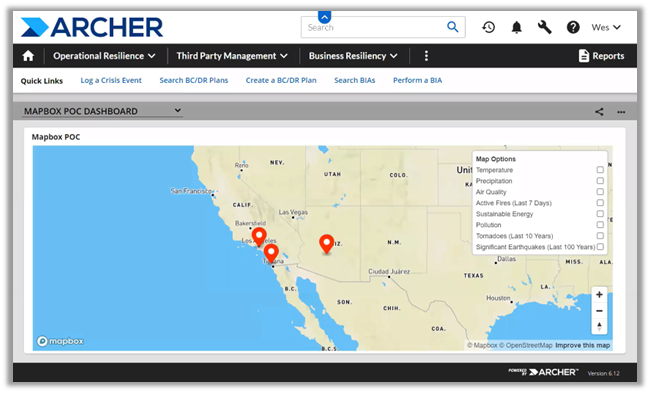Build Operational Resilience to Prepare for Business Disruption and Enable Business Transformation
- Archer
- Feb 16, 2022
- 2 min read
Updated: Jun 24, 2022

Building a resilient organization has traditionally been done through the lens of “what do we do after a disaster strikes? How long can we be down? How do we recover?” These are all valid questions. However, if the recent pandemic, ongoing cyber attacks, and supply chain issues have taught us anything, it is that people and organizations everywhere must be prepared for what may come.
Effective preparation not only includes what to do when (not if) a disruption occurs, but it starts earlier and often to identify potential disruptive scenarios and impacts and implement measures to proactively deal with them. Remember, disruption to your organization is not limited to natural disasters, pandemics, and cyber attacks. It can also come from your competition, outdated business models, and other places you may not be readily aware of.
Building resilience has, of necessity, become more about proactive planning, understanding what could impact the business, adapting, preparing for the inevitable, and learning from it all. But have you considered that building resilience can be a positive thing? Have you ever thought about how disruptive forces, if managed well, can make your organization stronger? Let me give you an example.
Wind plays a major role in a tree’s life. In fact, the presence of wind makes a tree stronger by constantly keeping the tree moving. This causes stress in the wood as the load bearing structure of the tree. To compensate, the tree grows what is called stress wood. This effect helps the tree grow stronger and position itself to get the best light. The tree grows in a more solid manner, thanks to the stress wood formed in response to the wind.
Taking this example, the tree is your organization. The winds are disruptive forces coming at you every day – natural disasters, cyber attacks, supply chain issues and more. These factors -- no matter how you react or the impact of these factors -- is in effect creating stress wood, which is what you have learned and measures you have put in place to be prepared or react, that makes your organization stronger to not only survive but thrive.
Building a resilient organization includes your people, processes, IT, third parties and more. Your organization becomes resilient by planning and preparing and by going through the experience of disruptions and mistakes made. It is all part of the process of learning and growing.
I am of the opinion that business resilience is more than worth the effort and price paid. It can be a daunting undertaking, with many not knowing where or how to start building business resilience for their organization.
Visit our website to learn more information on how Archer helps organizations build resilience.



Comments